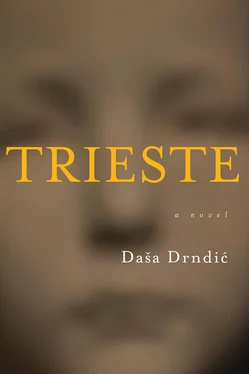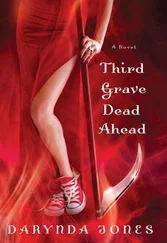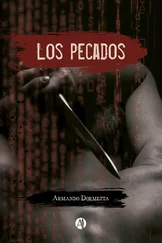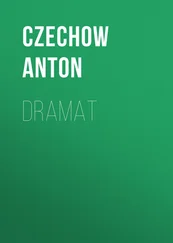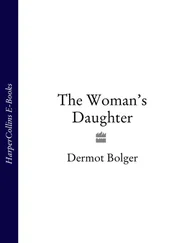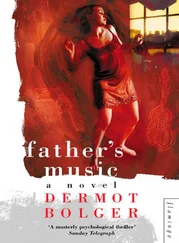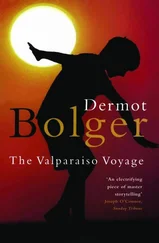Schiavo! howls the person who flung the cup. Schiavo, qui si parla solo italiano! The boys jump to their feet, pull out handkerchiefs, dip them in the water from their father’s glass and mop his back. The coffee flees, sheds its aroma, spreads around the man’s belt, trickles down his right trouser leg and wriggles to the ground like a small dead snake. On the light grey suit an image is left resembling a squished cow pat.
One damp Trieste evening, as Florian Tedeschi strolls along the deserted sluices, staring with horror at the empty belly of the port, nearly touching the sundering of the city which joins with his own sense of fragmentation, which, this rift of his, this schism, sinks perilously into rigidity like the calcified spine of an elderly stroller, he catches himself repeating, to the beat of his footsteps: vorrei dirvi, vorrei dirvi,
one, two,
vorrei dirvi,
I am a businessman,
not a waiter,
I am a soldier,
in every businessman,
in every soldier
hides an ache from which the soul cracks like frozen glass .
Florian Tedeschi turns into Via San Nicolò and stops at Number 30, where the sign Libreria Antiquaria Umberto Saba still stands today, but Umberto Saba is no longer in Trieste and there is a ribbed iron curtain drawn over the display window of the bookshop.
Tell me about a life and everything
that happens in it
in murky madness
of vainly discordant voices
says Florian Tedeschi staring at the tips of his waiter’s shoes.
Words exhaust themselves
he says
I remember everything, but understand nothing .
Time has shrunk like a jumper rinsed in hot water .
It is getting tight .
The next day, on 15 November, 1932, Florian Tedeschi goes to a branch office of the Banca di Napoli and to a friend from his army days, Luciano Grauer, says: Get me out of here .
In the 1930s there are about five thousand Jews living in Trieste who quickly leave the city, particularly after 1938. One of the four centres in Italy for the study of the Jewish Question is in Trieste, hard at work “profiling” the Italian nation, so Jews start scattering in every direction. Those who stay are captured efficiently by the Nazis and transported to camps all over Europe. Of the more than seven hundred Trieste Jews who are herded on to the freight cars of the trains that pull regularly into Trieste train station, fewer than twenty return after the war. The Tedeschis get out in time without even realizing it.
In late November, the Tedeschi family sail on the ship Ganga, or it may have been the Marco Polo, arranged through an association known as the Società Adriatica, from which a sticker remains, from this Adriatic association, the Adriatic ocean liner, whatever, and the sticker is remarkably preserved, torn no doubt, which was later lost without trace, travelling on its own to a world Haya never knew. from an item of family luggage, no doubt, which was later lost without trace, travelling on its own to a world Haya never knew. The Tedeschis arrive in Naples. For Haya, Naples is an image of blurred colours that mean peace of mind. There are no outlines, here and there a spark.

Paula and Orestes are born. Florian works at the Banca di Napoli. Ada follows Enrico Caruso as he sings “O, sole mio”, and she cooks and washes and cooks and washes, and feeds fish and pasta to her children. After dinner Haya listens to Leoncavallo with her father Florian, Pagliacci is always in fashion, now especially when Gigli is singing, one of Mussolini’s favourites. Every 12 December the family go out to the square where the Giornata della Madre e del Fanciullo is celebrated, when the names are announced of the twenty-three most reproductively active mothers in Italy, each with at least fourteen sons, and the mothers are received at a ceremony and given a modest award by Mussolini and the Pope. One year their neighbour Amalia wins with her eighteen sons, but little red-haired Rita is not part of the competition, as if she were not even there. Life is beautiful. The house is roomy. There are oranges in the garden. The children are given a donkey called Kroo. There are many joyful photographs. Their mother Ada is wearing a white hat, tipped to the right in all the pictures. They ride bicycles. Papa Florian goes to work in a suit. One evening Ada cries as she takes off her wedding ring. Florian removes his wedding ring, too, but doesn’t cry. We’ve been ordered to, he says. Haya wraps in a yellow flannel cloth the silver coat of arms of Gorizia that had hung in her grandfather Bruno Baar’s winery, so Ada says, and which they had brought with them on the long trek to the camp where it had served them, flipped over, as a bread board. I will not give them Marisa’s earrings, Ada says. Florian shouts, You must . With a red-hot needle Ada pierces Haya’s ears, though her hands are trembling. This is all I have of Mother’s. There isn’t even a grave , she says, and so it is that the earrings with their wreath of tiny, poorly burnished, grimy diamonds do not go to Mussolini. Haya has been wearing them for seventy-two years. There, as if they’ve shrunk, she says and touches her ear lobes. Then she says Enough for today and goes to bed.
She dreams — the corpse opens like a book. it flips open by itself, like a magic box, and in it are tiny diamonds, a multitude of tiny diamonds like flakes of dead skin — light. then, like a river, they flow. in the corpse which refuses to die, in that now genderless dead person, everything is still except the light which flees. the lack of smell. an embalmed erasure. the skin on the face of the corpse is taut, the eye sockets dry and empty. the skull shows through the dried parchment envelope, in the open mouth the teeth are growing, they get whiter and longer. haya looks into the belly and sees her face in the thousands of miniature surfaces of colourless precious stones, distorted and multiplied
That year, 1935, a quarter of a million Italians donate their gold and silver for a better future, for the happy days to come. In Rome 250,000 wedding rings are collected; 180,000 in Milan. Benedetto Croce gives up his senator’s medal; the Cardinal of Bologna, Nassali Rocca, donates his bishop’s chain; and Pirandello, his Nobel Prize medal. A total of 33,622 kilograms of gold is amassed. That same year Mussolini gives three million gold francs to Albania with a promise of additional economic support to follow.
That year, 1935, the slogan “Buy Italian!” is pushed; an autarky is born; imported goods and foreign businesses disappear. Italy cleanses its digestive tract, feeds on purgatives, gloats with self-satisfaction, blossoms in its little corral.
Two years later the demographic campaign reaches its peak. Mussolini writes a cheque for 700 lire, a good month’s wages at the time, to every young man who decides to marry. The administration creates new jobs and welcomes in its embrace child-bearing Italians, pint-sized studs. Fecund mothers, those with at least seven sons, receive a cheque for 5,000 lire and a life-insurance policy. This is a time of wholesale fornication.
MINCULPOP is born, the Ministry of Popular Culture, and with it new dictionaries, orthographies, patriotism; the use of foreign phrases is banned, and they are replaced by Italian surrogates. Maxim Gorky is dubbed Massimo Amaro, but he is swiftly removed from the libraries and bookshops; Louis Armstrong becomes Luigi Fortebraccio, and Benny Goodman is Beniamino Buonuomo; shortly thereafter MINCULPOP bans all jazz performance and broadcasts.
Читать дальше
